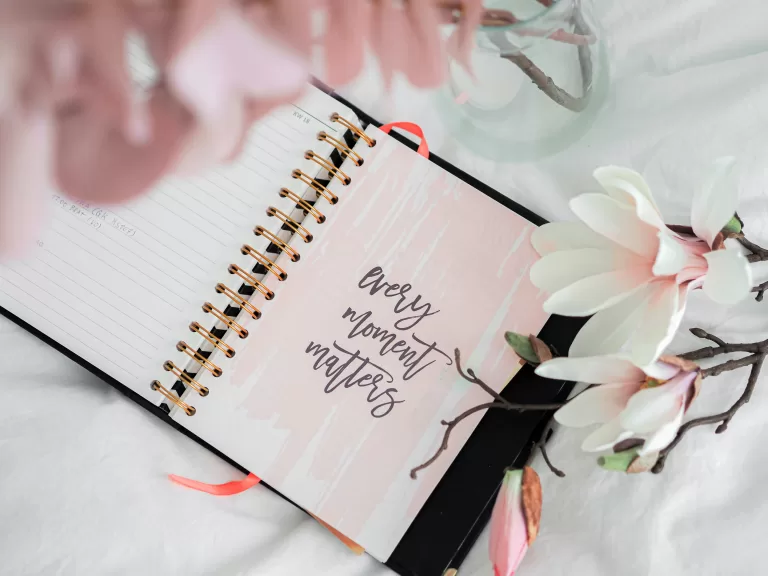How to Set Boundaries and Stop Letting Others Control Your Life
Let’s face it—setting boundaries can feel like one of the most challenging things to do, especially if you’re used to being the “yes” person. You know, the one everyone can count on to help out, lend an ear, or take on that extra project at work.
But what happens when saying “yes” all the time leaves you feeling drained, overwhelmed, and like you’re not even in control of your own life?
That’s exactly what we’re going to tackle here. In this post, we’ll dive into the topic of boundaries—what they are, why they’re so essential, and how you can start setting them today to take back control of your life.
If you’ve ever felt like others are running your life or that you’re constantly stretched too thin, this guide is for you.
We’ll break it all down in simple, practical steps. By the end, you’ll have a toolkit full of strategies to help you set boundaries that stick, stop people from taking advantage of you, and start living the life you want.
So, grab a cup of your favorite drink, get comfy, and let’s get into it!
1. Understanding Boundaries
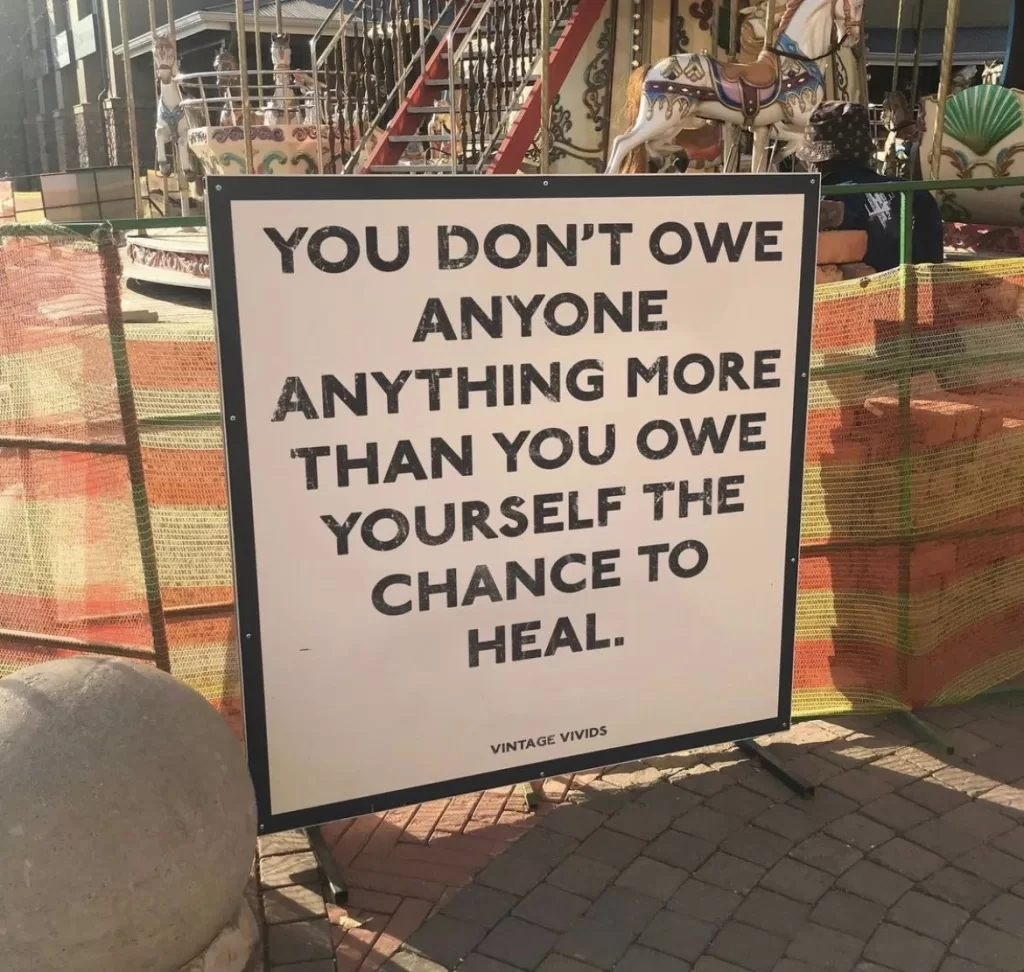
Why Boundaries Are Crucial
So, let’s get straight to the point—why are boundaries such a big deal? Picture this: you’re juggling a dozen things at once, trying to keep everyone around you happy, and before you know it, you’re left feeling completely drained, stressed out, and maybe even a little resentful. Sound familiar?
That’s what life looks like when you don’t have clear boundaries in place. When you’re always saying “yes” to everyone else’s needs and “no” to your own, it’s only a matter of time before you hit a breaking point.
Boundaries are what keep that from happening. They’re your first line of defense against burnout and overwhelm, and they give you the power to live your life the way you want to.
Without boundaries, other people end up making decisions for you—how you spend your time, what you focus on, and even how you feel about yourself.
It’s like handing over the remote control to your life and letting someone else press the buttons. And let’s be real, that’s no way to live.
On the flip side, when you set and maintain healthy boundaries, something amazing happens. You start to reclaim your time, your energy, and your peace of mind.
Boundaries help you stay true to your own values and priorities instead of getting lost in the demands of others. They’re the foundation of a balanced, fulfilling life where you’re in the driver’s seat.
Myth-Busting: Boundaries vs. Barriers
Now, let’s clear up a common misconception: setting boundaries isn’t the same as putting up barriers.
I know it can feel a bit like you’re building a wall when you first start setting boundaries, especially if you’re not used to it. But trust me, there’s a big difference.
Boundaries are all about creating healthy limits that protect your well-being! They’re flexible and meant to foster better relationships—not shut people out. Think of them as the guidelines that let you interact with others in a way that feels good for everyone involved.
Barriers, on the other hand, are more like emotional walls that you put up to keep people at a distance. These walls often come from a place of fear or past hurt, and while they might keep you safe in the short term, they can also keep you isolated and lonely in the long run.
What we’re aiming for here are boundaries, not barriers. Boundaries allow you to connect with others in a healthy, balanced way. They help you maintain your sense of self while still being open to relationships and new experiences.
So, if you’ve been avoiding setting boundaries because you’re afraid of coming off as cold or distant, just remember: boundaries are about respect—both for yourself and for others.
Identifying Where You Need Boundaries
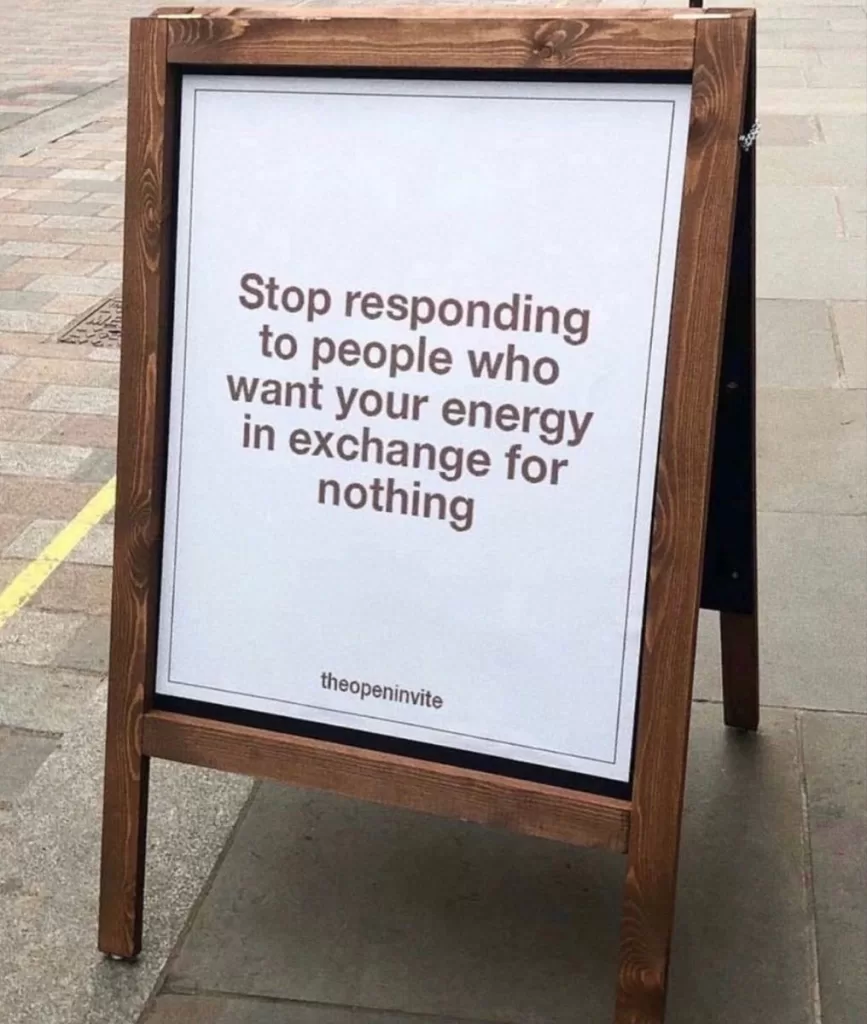
When it comes to setting boundaries, the first step is recognizing where they’re lacking in your life. This part is crucial because you can’t fix something if you don’t know it’s broken!
So, let’s take a closer look at the signs that you need stronger boundaries and the common areas where they’re most often needed.
Signs You Lack Boundaries
It’s easy to go through life not realizing that you’re operating without clear boundaries, especially if you’ve been conditioned to put others’ needs before your own.
However, your mind and body have ways of signaling that something’s off. Here’s a more detailed look at the warning signs that you need to set better boundaries:
You’re Always Exhausted—Physically, Emotionally, or Both
Fatigue is often one of the first signs that your boundaries are being crossed. This isn’t just about being physically tired; it’s about feeling emotionally drained, too.
If you constantly feel like you’re running on empty, it’s a signal that you’re giving more than you’re getting back.
You might be spending all your energy on others—whether it’s helping a friend through a tough time, taking on extra responsibilities at work, or managing household duties—without leaving anything in the tank for yourself.
Over time, this can lead to burnout, where you’re no longer able to cope with even the smallest tasks.
You Say “Yes” When Every Fiber of Your Being Wants to Say “No”
We’ve all been there—someone asks you to do something, and before you know it, the word “yes” slips out of your mouth, even though you’re screaming “no” inside.
This automatic “yes” response often comes from a place of wanting to please others, fear of conflict, or not wanting to disappoint anyone. But each time you say “yes” when you really mean “no,” you’re pushing your own needs aside.
Over time, this can lead to resentment, both towards the other person and yourself for not standing up for what you truly want.
You Feel Guilty About Putting Yourself First
Guilt is a powerful emotion, and it’s one that often keeps us from setting boundaries. You might feel like it’s selfish to prioritize your own needs, especially if you’re someone who’s always been the “caretaker” in your relationships.
But here’s the thing—taking care of yourself isn’t selfish; it’s necessary. When you put yourself first, you’re actually better equipped to help others because you’re not running on empty.
If you find yourself feeling guilty every time you consider doing something for yourself, that’s a sign that your boundaries need some serious attention.
You’re Resentful or Anxious
Resentment is a big red flag that your boundaries are being trampled. It usually creeps in when you’ve been giving too much for too long without receiving enough in return.
Maybe you’re always the one to step up at work, but no one seems to notice, or perhaps you’re always there for your friends, but they’re nowhere to be found when you need support.
Resentment can also build when you feel like you have no control over your life, leading to anxiety. If you’re feeling anxious about certain people or situations, it’s often because your boundaries are being crossed, and you’re not sure how to take back control.
Common Areas Where Boundaries Are Often Needed

Boundaries are necessary in all aspects of life, but there are some areas where they tend to be especially crucial. Let’s explore these areas in more detail
In Relationships
Relationships, whether with friends, family, or romantic partners, can be wonderful, but they can also be a major source of stress if boundaries aren’t in place. For example, you might have a friend who always expects you to drop everything whenever they have a problem, even if it means neglecting your own responsibilities.
Or, in a romantic relationship, you might find yourself constantly compromising your own needs to keep the peace or make your partner happy. Family dynamics can be particularly tricky—maybe your parents or siblings expect you to be available at all times, or they frequently offer unsolicited advice that crosses your comfort zone.
Without boundaries, these relationships can become draining and imbalanced!
At Work
The workplace is another area where boundaries are often tested. Perhaps your boss expects you to be on call 24/7, or your coworkers regularly pass their tasks onto you because they know you won’t say no.
Maybe you’re taking on more than your fair share of projects because you’re afraid of being seen as uncooperative or because you want to prove yourself. Over time, this can lead to feeling overworked, undervalued, and ultimately, burned out.
Setting boundaries at work can be tough, especially if you’re in a competitive or demanding environment, but it’s essential for maintaining your mental and physical health.
In Social Settings
Social situations, both online and offline, can also require strong boundaries. With social media, there’s a constant pressure to be “on,” sharing updates, responding to messages, and staying connected 24/7.
This can be exhausting and overwhelming, especially if you’re someone who values privacy or needs time to recharge.
In real life, social events and gatherings can be stressful if you feel obligated to attend everything you’re invited to or if you struggle to say no to social obligations that don’t align with your interests or energy levels.
Setting boundaries in social settings helps you maintain your personal space and peace of mind!
Self-Reflection Exercises
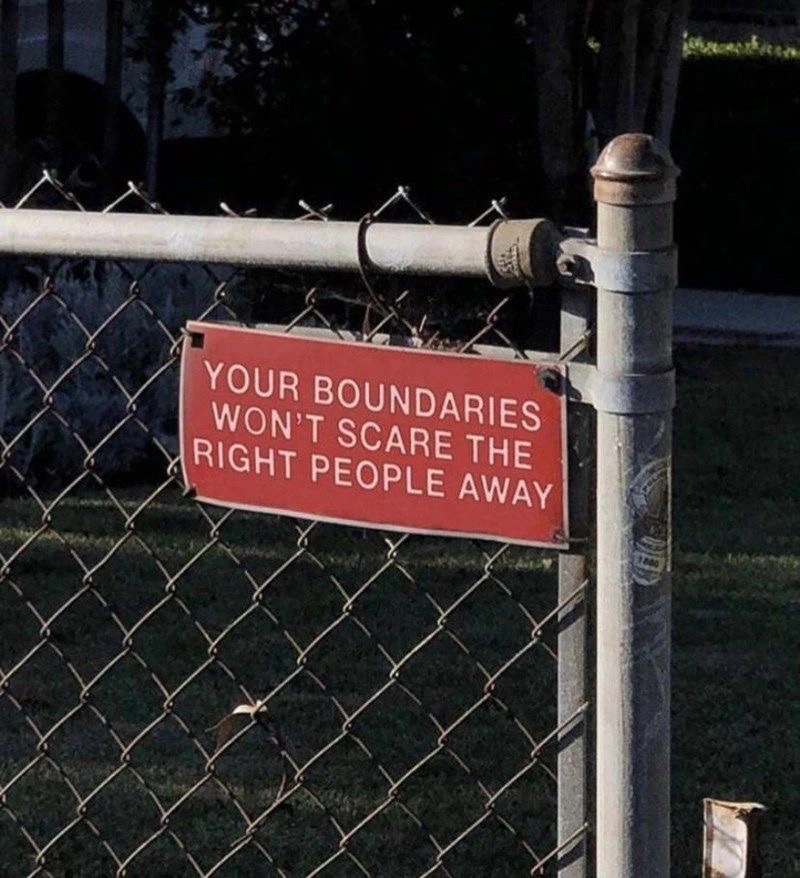
To really nail down where your boundaries might be lacking, it’s important to take some time for self-reflection.
Here are some deeper exercises to help you uncover the areas in your life where you need stronger boundaries:
Energy Audit
Spend a week tracking how you spend your time and energy. Each day, jot down the tasks you complete, the people you interact with, and how you feel afterward.
At the end of the week, review your notes. Where do you see patterns of exhaustion or resentment? Are there certain tasks or interactions that consistently drain you? This exercise helps you pinpoint the areas where your boundaries might be too loose.
The “Should” List
Make a list of all the things you feel you “should” be doing. This might include obligations like attending family events, saying yes to every social invitation, or taking on extra work to prove yourself.
Once you’ve made your list, go through each item and ask yourself, “Why do I feel like I should do this? Is this something I actually want to do, or am I doing it out of obligation or fear?” This exercise helps you differentiate between what’s truly important to you and what you’re doing just to meet others’ expectations.
Boundary Mapping
Take a piece of paper and draw a circle in the center. This circle represents you and your personal space. Now, draw lines extending from the circle to represent different areas of your life—relationships, work, social life, etc.
Next, write down the specific boundaries you need to set in each area. For example, in your work area, you might write, “No work emails after 7 PM,” or in your relationship area, “Spend at least one night a week on self-care without feeling guilty.”
This visual map helps you see where your boundaries are strong and where they need more reinforcement.
Role-Playing Scenarios
Imagine a scenario where you need to set a boundary. Maybe it’s telling a friend you can’t help them move this weekend, or informing your boss that you can’t take on an additional project.
Play out the conversation in your mind, focusing on how you would communicate your boundary clearly and assertively. How does it feel? What emotions come up? This exercise helps you prepare for real-life boundary-setting by reducing anxiety and building confidence.
Journaling Prompts
Spend some time journaling with prompts that encourage you to explore your relationship with boundaries. Here are a few to get you started:
- “When do I feel most overwhelmed? What might be causing this?”
- “What am I afraid will happen if I start setting stronger boundaries?”
- “How would my life change if I prioritized my own needs as much as I prioritize others’?”
- “What’s one boundary I’ve been avoiding setting, and why?”
These exercises aren’t just about identifying where you need boundaries—they’re about gaining a deeper understanding of why you struggle to set them in the first place.
By taking the time to reflect on your own behaviors and patterns, you’ll be better equipped to make lasting changes that improve your well-being and help you take back control of your life.
How to Set Boundaries Effectively

Setting boundaries can feel tricky, especially when you’re not used to doing it. But once you know how, it can be incredibly empowering.
It’s all about communicating your needs in a way that feels respectful to both you and the people around you. Let’s break it down step by step so you can start setting boundaries that stick and feel good.
1. Get Clear on What You Need
Before you can communicate your boundaries to others, you need to know what your boundaries actually are. This might sound obvious, but it’s an essential first step.
Take a Moment to Reflect
Think about the situations in your life where you feel frustrated, overwhelmed, or taken advantage of. These are often areas where your boundaries are weak or nonexistent. Ask yourself:
- What makes me feel stressed or resentful?
- Where do I feel like I’m being stretched too thin?
- When do I feel like my time or energy is being taken for granted?
By reflecting on these questions, you’ll start to identify the areas where you need boundaries. For example, maybe you feel burnt out from always saying “yes” to social invites when you’d rather stay in, or perhaps your boss regularly expects you to work late, cutting into your personal time.
Once you’ve pinpointed where the problem is, it’s easier to define what you need to protect yourself. Be specific. Instead of just saying, “I need more personal space,” try, “I need to spend at least two evenings a week by myself to recharge.”
2. Communicate Clearly and Kindly
The next step is to communicate your boundaries clearly. The key here is to keep things simple, direct, and non-confrontational. You don’t have to justify or apologize for your boundaries — they’re your needs, and that’s enough.
Use “I” Statements
Using “I” statements helps you express your boundaries without sounding like you’re blaming anyone. You’re focusing on how you feel and what you need, which prevents the other person from feeling attacked. For example:
- Instead of: “You’re always dumping work on me at the last minute.”
- Say: “I feel stressed when I receive last-minute tasks because it affects my ability to complete them on time. I need more notice so I can do my best work.”
Be Specific
Vague boundaries lead to confusion. Saying, “I need more time to myself,” doesn’t really give the other person a clear idea of what you want.
Instead, be specific: “I need Saturdays to myself to recharge, so I won’t be available for any social plans on those days.”
Be Kind, But Firm
Sometimes people will challenge your boundaries, either because they’re used to you being available all the time, or because they simply don’t understand.
You can be firm without being aggressive. If someone pushes back, try saying:
- “I understand that this might be inconvenient, but this is really important for my well-being. I need you to respect this boundary.”
If they still don’t respect it, that’s a different conversation, which we’ll get to soon!
3. Expect Pushback and Handle It Calmly

People won’t always be thrilled when you set boundaries, especially if they’ve benefited from your lack of them in the past.
It’s natural for some people to push back, but that doesn’t mean your boundary isn’t valid. Here’s how to handle it:
Stay Calm and Confident
When someone challenges your boundary, it’s easy to second-guess yourself. You might feel guilty or wonder if you’re being too harsh.
But remember, boundaries are there to protect your time, energy, and mental health. Stay calm and confident in your delivery, even if others aren’t happy about it. For example:
- “I understand that this changes things for you, but this boundary is important for me to maintain balance.”
Restate Your Boundary When Needed
If someone ignores your boundary or tries to cross it, don’t be afraid to restate it. It might feel uncomfortable at first, but you’re simply reminding them of what you need.
Let’s say a friend keeps calling you during your “me-time” after you’ve asked them not to. You can say:
- “I’ve mentioned that I need my evenings to myself. Let’s catch up tomorrow during the day.”
Consistency is key here! If you let your boundaries slide, people will start to think they don’t really matter.
4. Know When to Walk Away
Unfortunately, there are times when people just won’t respect your boundaries, no matter how clear or kind you are. This is when you need to protect yourself by either distancing yourself or walking away from the situation entirely.
Evaluate the Relationship
If someone repeatedly ignores or disrespects your boundaries, it might be a sign that the relationship (whether it’s with a colleague, or even a friend) isn’t healthy. Take a step back and ask yourself:
- Is this relationship adding to my life, or is it mostly draining me?
- Do I feel valued and respected in this relationship?
- Am I constantly sacrificing my well-being to keep the peace?
If the answer to these questions is negative, it might be time to reconsider the relationship or set even firmer boundaries.
Distance Yourself If Needed
If walking away entirely isn’t an option (like in a work or family relationship), you can distance yourself emotionally or physically.
Limit the amount of time you spend with this person, or reduce your interactions to situations where your boundaries are less likely to be tested.
For example, you could choose to only interact with a difficult colleague during meetings and avoid unnecessary one-on-one conversations.
5. Practice Makes Perfect
Setting boundaries is a skill, and like any skill, it gets easier with practice. The more you assert your needs, the more natural it will feel, and the more respect you’ll get from others.
Start Small
If the thought of setting big boundaries feels overwhelming, start small. Pick one area of your life where you feel a manageable level of discomfort and practice setting a boundary there.
For example, you could start by saying “no” to extra work when your plate is already full. As you get more comfortable, you can tackle bigger areas, like setting boundaries in relationships or with family.
Be Consistent
Consistency is key to making your boundaries stick. The more you reinforce them, the less you’ll have to explain yourself down the line.
If you waver, people might take it as a sign that they can keep pushing your limits. Stay steady, and soon enough, your boundaries will be second nature — to you and to others.
When to Adjust or Reassess Boundaries

Boundaries, like people, are not static. As your life evolves, your relationships change, and new challenges or goals emerge, it’s important to adjust or reassess the boundaries you’ve set.
What worked for you a year ago may no longer fit, and that’s okay. The goal is to have boundaries that serve your current needs and circumstances.
1. Signs That It’s Time to Reassess Your Boundaries
There are some clear indicators that it may be time to revisit the boundaries you’ve put in place. Here are a few common signs:
- You Feel Resentful or Exhausted: If you’re feeling consistently drained, resentful, or overwhelmed, it may be a sign that your boundaries aren’t strong enough or that people in your life are pushing against them too often.
- You’re in a New Life Stage: Life transitions like moving to a new city, starting a new job, entering or leaving a relationship, or having children might require you to set new boundaries or adjust old ones.
- Your Priorities Have Shifted: Sometimes, your goals or priorities change. Maybe you used to love spending your weekends with friends, but now you need that time to recharge. When your priorities shift, your boundaries should shift with them.
2. How to Adjust Your Boundaries
Once you realize a boundary needs to be reassessed, it’s important to make the necessary adjustments in a thoughtful way. Here’s how to do that:
- Reevaluate Your Needs: Take some time to reflect on what you need now. Have your emotional, physical, or mental health requirements changed? What do you want more or less of in your life? Use these reflections to guide your boundary adjustments.
- Communicate the Change: Once you’ve identified a new boundary or adjusted an existing one, communicate it to the people who need to know. For example, if you used to be available for calls on weekends but no longer want that to be the case, let your friends or colleagues know: “I’m setting aside my weekends for personal time, so I won’t be taking calls during that time.”
- Give Yourself Permission to Evolve: It’s easy to feel guilty when you need to adjust a boundary, especially if it impacts others. But remember, it’s okay to change. You have every right to modify your boundaries to suit your life as it evolves.
3. Handling Pushback on New Boundaries
When you change a boundary, especially one that people have become accustomed to, there may be pushback. This is natural, as people need time to adjust. Here’s how to handle that:
- Be Patient, But Firm: You may need to remind people of the new boundary more than once. Be patient, but don’t waiver. Consistent reinforcement helps others understand that this change is non-negotiable.
- Acknowledge the Change: If someone expresses frustration or confusion, acknowledge it: “I know this is a change from what we used to do, but it’s something I need to do for myself right now.” This shows empathy while still standing firm in your decision.
The Impact of Boundaries on Relationships
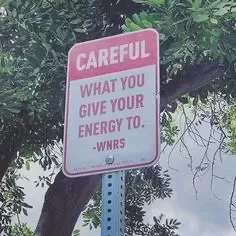
Boundaries have a profound impact on relationships, whether they’re with friends, family, coworkers, or partners. When boundaries are set and respected, relationships become healthier, more balanced, and more fulfilling.
However, when boundaries are crossed or ignored, relationships can become strained, resentful, or toxic.
1. Strengthening Relationships Through Boundaries
Contrary to what some people think, setting boundaries doesn’t push people away. In fact, it can strengthen relationships by creating clear expectations and reducing misunderstandings. Here’s how:
- Boundaries Foster Respect: When you set a boundary, you’re telling others how you expect to be treated. Respecting boundaries builds trust and mutual respect, which are the foundation of any healthy relationship!
- They Reduce Resentment: Without boundaries, you may find yourself doing things out of obligation or guilt, which can lead to resentment. Clear boundaries prevent this by ensuring that you’re only saying “yes” when you truly want to, and “no” when you need to.
- They Create Emotional Safety: Boundaries create a sense of emotional safety. When people know and respect each other’s limits, they feel more comfortable being themselves and expressing their needs without fear of overstepping or being overburdened.
2. Boundaries and Toxic Relationships
While boundaries can strengthen healthy relationships, they can also highlight issues in toxic ones. When you start setting boundaries, people who have been taking advantage of your lack of them may resist, become angry, or try to manipulate you.
This is especially common in toxic or controlling relationships.
Recognizing Red Flags
Some red flags that someone isn’t respecting your boundaries might include:
- They Dismiss Your Boundaries: They treat your boundary as unimportant or irrelevant.
- They Guilt You for Setting Boundaries: They make you feel bad for prioritizing your own needs, often with statements like, “I thought we were friends,” or, “I can’t believe you won’t help me with this.”
- They Repeatedly Violate Your Boundaries: Even after you’ve clearly communicated a boundary, they ignore it or try to manipulate you into bending it.
What to Do If Someone Won’t Respect Your Boundaries
If someone consistently disregards your boundaries, it’s important to take action:
- Reinforce the Boundary: Calmly and clearly remind them of your boundary and why it’s important.
- Evaluate the Relationship: If the person continues to violate your boundaries, it may be time to reevaluate the relationship. In some cases, this might mean distancing yourself from the person or ending the relationship entirely.
- Seek Support: If you’re dealing with a particularly difficult or manipulative person, it can be helpful to talk to a therapist or trusted friend for support. They can offer perspective and help you navigate the situation in a healthy way.
Conclusion
Setting boundaries is an act of self-respect and a pathway to a healthier, more balanced life. It might feel uncomfortable at first, but remember — boundaries aren’t about shutting people out, they’re about making space for what matters most: your well-being, peace, and happiness.
By saying “no” when you need to, you’re giving yourself the freedom to live on your terms. You’re teaching others how to treat you while ensuring you protect your time and energy.
It’s not selfish, it’s necessary for a fulfilling life!
As you practice setting and maintaining boundaries, you’ll gain confidence and clarity. You’ll feel lighter, more empowered, and in control of your life. Boundaries are your key to unlocking a life that respects your needs, and you deserve that freedom.
You’ve got this — stay firm, be kind to yourself, and watch how your world transforms!
